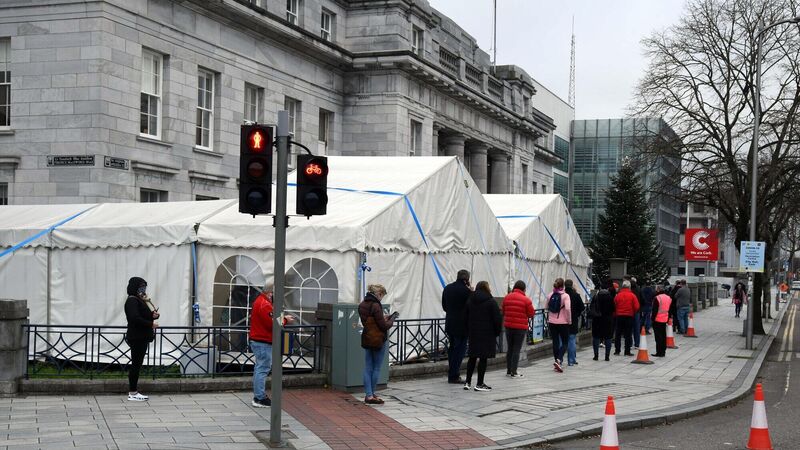Political year in review: Weathering the Covid storm

The political year was dominated by all things Covid-19; above: the queue outside the vaccination centre at City Hall, Cork, earlier this month. Picture: Denis Minihane
The year got off to an inauspicious start when Education Minister Norma Foley tried and failed not once but twice to re-open the schools after Christmas.














